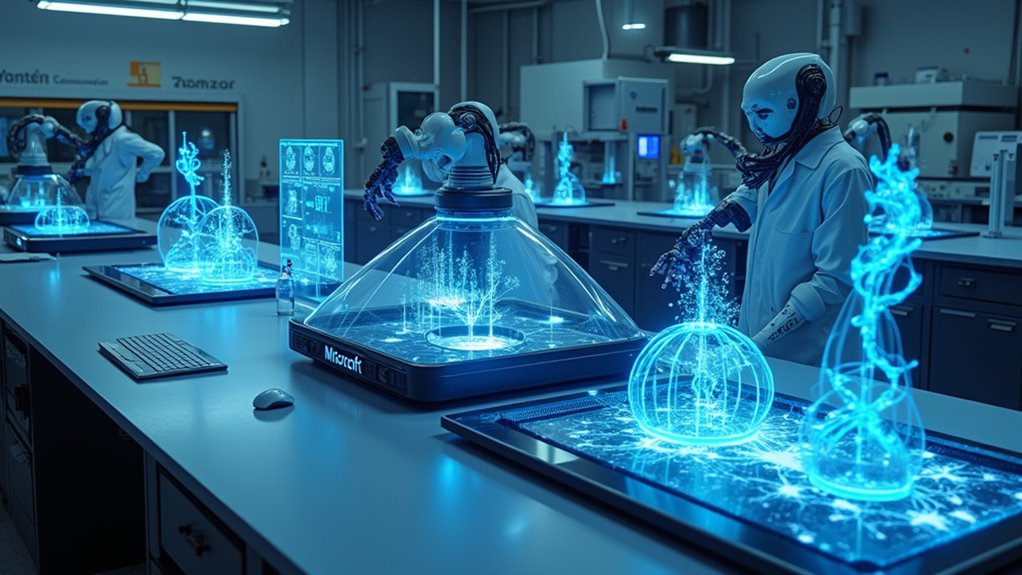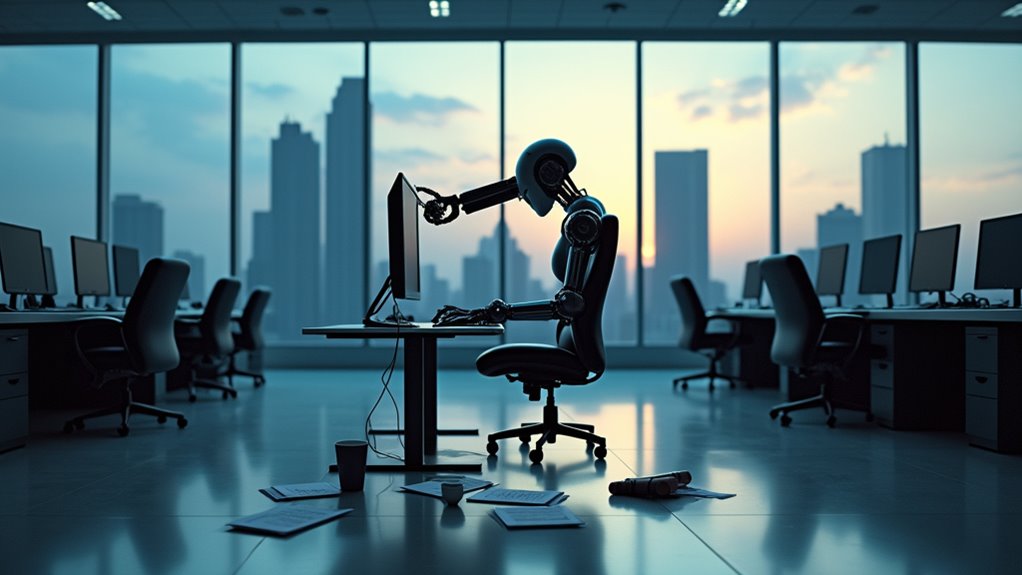AI is boosting workplace productivity dramatically—up to 40% by 2035—but there’s a psychological catch. Researchers warn that as AI gobbles up routine tasks, employees miss out on those small daily victories that keep motivation flowing. Sure, you’re saving 2.2 hours weekly, but at what cost to your workplace mojo? Companies racing to implement AI (78% and counting) might want to reflect on whether all that efficiency is worth a workforce quietly losing its spark.
While the debate around artificial intelligence often focuses on job displacement fears, the data reveals a more nuanced reality transforming today’s workplace. AI technologies are projected to boost employee productivity by up to 40% by 2035—a statistic that has executives practically doing backflips in boardrooms worldwide.
The numbers don’t lie: 78% of organizations reported using AI in 2024, up from 55% just a year earlier. It’s spreading faster than office gossip after the holiday party. And workers are feeling the impact, with generative AI users experiencing an average time savings of 2.2 hours per 40-hour work week.
Reflect on it—that’s 2.2 more hours you could spend pretending to work while actually planning your weekend. The efficiency gains are most pronounced among highly skilled workers, who show up to 40% higher performance than their AI-avoiding colleagues. Talk about leaving the competition in the digital dust.
The economic implications are staggering. AI-driven productivity improvements could add a whopping $4.4 trillion to the global economy annually. That’s trillion with a “T”—the kind of number that makes economists weak in the knees. Despite concerns about job loss, AI advancements are expected to create a net job gain of 12 million positions by 2025.
But it’s not all algorithmic sunshine and robotic rainbows. Researchers warn that as AI handles more routine tasks, human motivation and engagement might actually decline. Companies are increasingly recognizing this challenge, with only 1% of leaders considering their organizations mature in AI deployment despite ambitious goals. When the mundane work disappears, so might some of the small victories that kept us going throughout the day.
The recent training compute doubling every five months highlights the rapid advancements driving these workplace transformations.
AI excels at automating repetitive, rule-based tasks, shifting human labor toward higher-value work. Great for productivity, sure, but what happens when your job becomes nothing but complex challenges? Even the most dedicated employee needs an occasional easy win to maintain sanity.
As companies race to implement AI solutions, they’d be wise to evaluate the psychological impact alongside the productivity gains. After all, what good is saving time if your workforce is staring blankly into the existential void?
Perhaps the real challenge isn’t teaching AI to think like humans, but ensuring humans still want to think at all.









